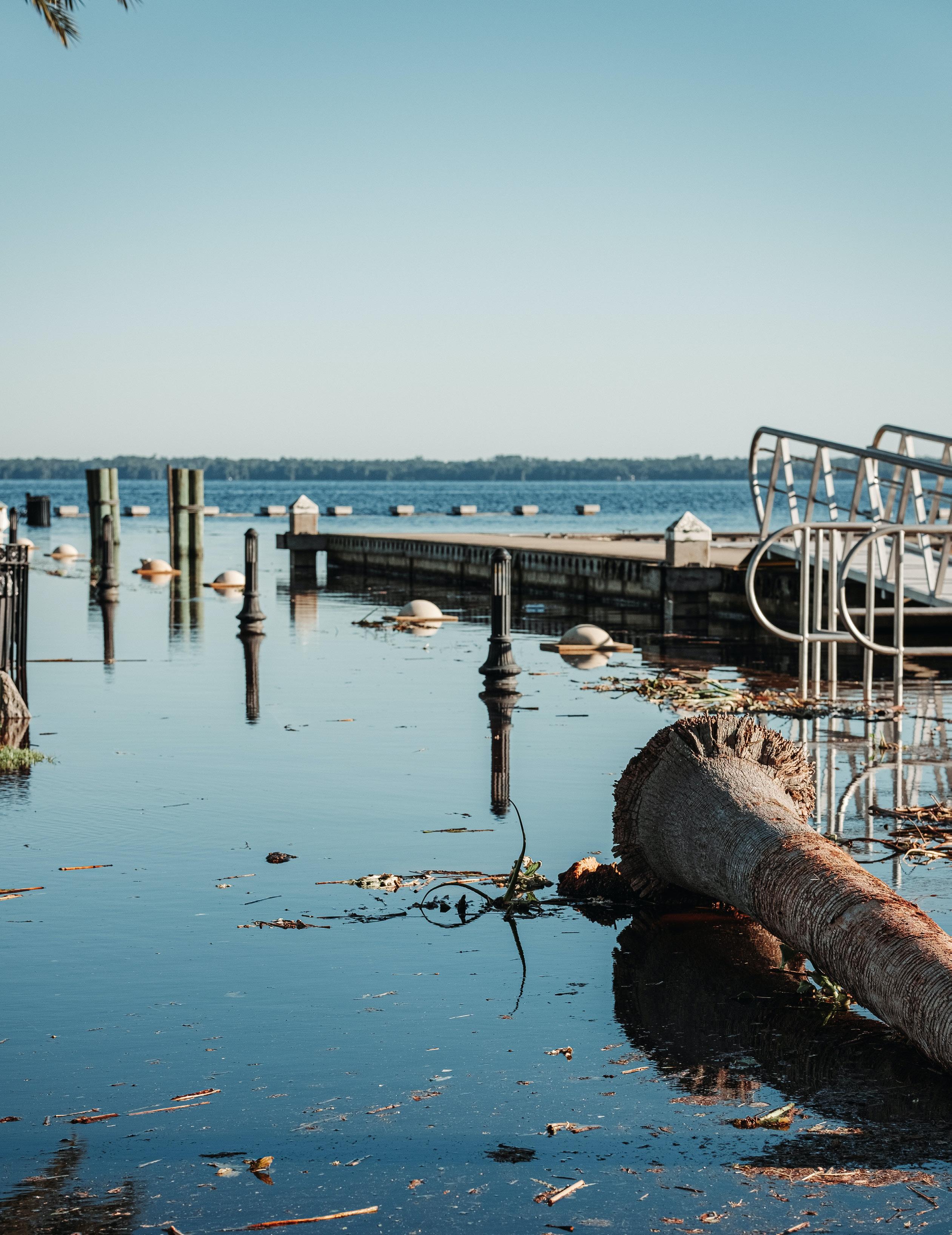
Volume 9 - Issue 4 NATURAL DISASTERS AND THE ASYMMETRY OF CLIMATE CHANGE IN THE CARIBBEAN ECLAC CARIBBEAN AND UNDESA CONTINUE NATIONAL CONSULTATION MEETINGS.. Dominica receives AGENDA 2030 SUPPORT FROM ECLAC CARIBBEAN
Issued on a monthly basis, The Hummingbird offers insights into the latest projects, publications, technical assistance missions and research carried out by ECLAC Caribbean. In addition to these, sneak previews are provided of the most salient upcoming events, alongside enriching followups to previously covered issues. With a view to featuring a variety of facets of Caribbean life and lifestyle, The Hummingbird also zooms in on cultural activities and landmark occurrences through an eye-opening regional round-up.

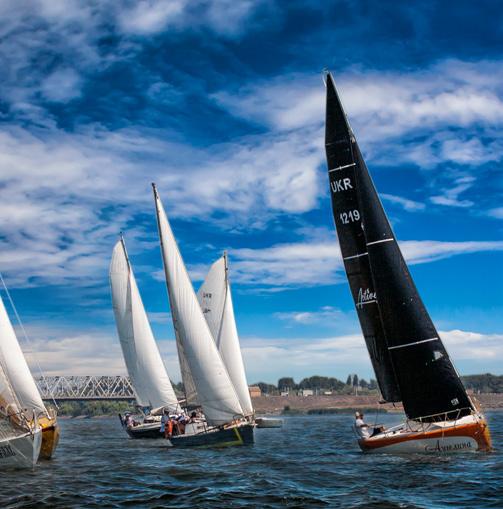
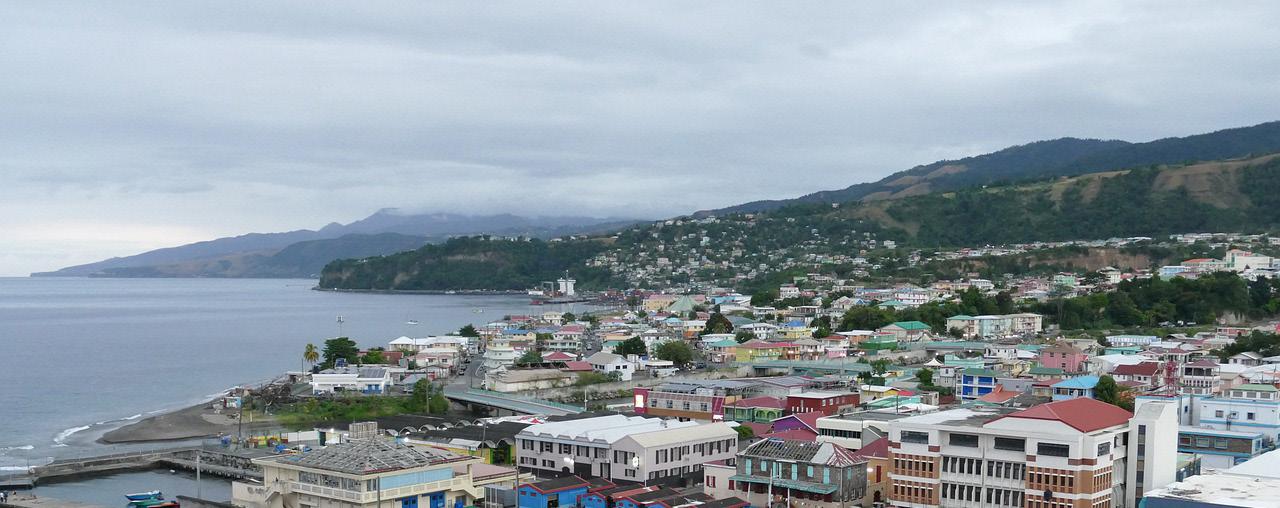
Copy
Proof
Please see our contact details on the back cover of this magazine. About us Dominica receives Agenda 2030 support from ECLAC Caribbean A HUMMINGBIRD FEATURE: Natural disasters and the asymmetry of climate change in the Caribbean … discussed at Fifth Forum meeting The Bahamas’ national regatta is back ECLAC Caribbean and UNDESA continue national consultation meetings … this time in Trinidad and Tobago ECLAC family welcomes two staff members 4 6 10 12 14 13 6 4
EDITORIAL TEAM Editor: Johann Brathwaite
Editor: Denise Balgobin
Reader: Veera Deokiesingh-Fraser Publication Design: Liseanne Martin-Subero
International Days
28 April
World Day for Safety and Health at Work
3 May World Press Freedom Day
15 May
International Day of Families
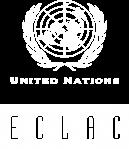
21 May
World Day for Cultural Diversity for Dialogue and Development
Upcoming Meetings

30 May
ECLAC participates in the IV Workshop on Transboundary Water Management "Tools and processes to accelerate the progress of Cooperation in Transboundary Water Management
31 May
National Consultation - Sustainable Recovery and Resilience towards achieving the Sustainable Development Goals in Antigua and Barbuda
ECLAC Caribbean has participated in an ongoing series of national consultations with member States, discussing recovery and resilience in the wake of the COVID-19 pandemic. One such consultation took place in March 2022 in Dominica. This meeting represented the second phase of cooperation—involving ECLAC and the United Nations Department of Economic and Social Affairs (UNDESA). The consultations aimed at strengthening the integrated recovery planning and decision-making capacity of national stakeholders in Dominica. These consultations build on the first phase, which included the provision of advisory support, intending to develop measures to overcome the impacts of the COVID-19 pandemic. Effective socioeconomic recovery from the pandemic is essential to achieve the 2030 Agenda and the Sustainable Development Goals.
The consultative meeting in Dominica discussed with stakeholders the progress in formulating and implementing sustainable recovery plans, which focused
dominica receives agenda 2030 support
FROM ECLAC CARIBBEAN

4|The Hummingbird
on the National Resilience Development Strategy (NRDS) that advances the SDGs’ achievement. Moreover, these consultations brought together representatives of Dominica’s Government, Central Statistical Offices (CSOs), academia, indigenous peoples, and private sector representatives. Stakeholders engaged in the implementation of Dominica’s development and recovery plans. Plans included the NRDS, the Climate Resilience and Recovery Plan (CRRP), and other COVID-19 recovery plans. Furthermore, policymakers have emphasized how policy coherence and better-integrated planning mechanisms can help countries
strengthen their planning processes.
The national consultations with Dominica emphasized the relevance of robust and coherently integrated policies to strengthen SIDS’ limited capacities. Capacity building is critical for SIDS to recover from the adverse external shock created by COVID-19 and build resilience against future challenges. At the start of the COVID-19 pandemic, Dominica’s capacity to deal with external shocks was limited, as the country was recovering from an earlier disaster.
Dominica was still rebuilding from Hurricane Maria in 2017, a category five hurricane that had significantly impacted
THE CARIBBEAN ISLAND OF SABA
REMOVES TESTING RULES FOR TRAVELERS
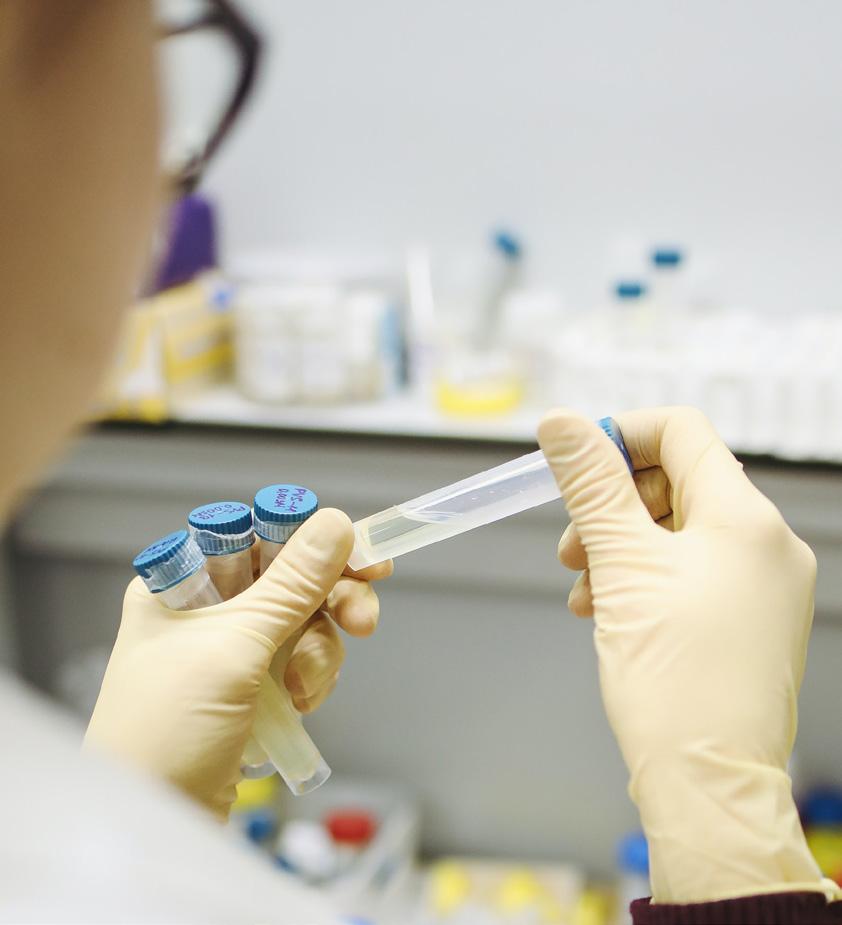
the country. Hurricane Maria resulted in losses of 225 per cent of Dominica’s GDP. Making the country’s situation worse, hurricane Erika preceded hurricane Maria two years earlier in 2015, costing the country 96 per cent of its GDP. Unsurprisingly, Dominica was the country with the highest GDP losses to climaterelated natural disasters from 1997 to 2017. In addition, this Caribbean country ranked in the top 10 per cent among 182 countries for climate-related fatalities, as the Government of Dominica reported. Before the COVID-19 crisis, the Eastern Caribbean Central Bank (ECCB) forecasted GDP growth at 5.47 per cent for 2020. However, the pandemic reduced the expected gains in Dominica’s economy in the near term.
Nevertheless, efforts to recover from Hurricane Maria’s impacts led to solid growth in the construction sector during the pandemic, thanks to large
public investment programmes in housing and infrastructure resilient to natural disasters. These public investments equalled 30 per cent of the country’s GDP. Therefore, financing climate-resilient infrastructure will be essential as the country recovers from the COVID-19 pandemic. Furthermore, building climate-resilient infrastructure promotes economic growth, which helps prevent financial and human losses to future extreme weather events. Building climate resilience is crucial as extreme weather events will become more frequent due to the many negative consequences of climate change.
The Dutch Caribbean island of Saba has removed all of its testing rules for travelers. As of the first of May 2022, the island will no longer require travelers to have a pre-travel test or complete an online health registration form. Post-arrival testing for incoming travelers has also been removed, while masks will no longer be mandatory for day trippers.
“The Saba Tourist Bureau looks forward to welcoming visitors to explore its stunning natural beauty,” the island’s tourism board said in a statement. “The entire island is exceptionally unspoiled and beautifully maintained, reflective of the locals’ deep sense of pride in their home, villages, and history. Its relative remoteness in the open sea also creates a unique ecosystem and a monument to nature’s best.”
Often dubbed the Caribbean’s “Unspoiled Queen,” the island is a short flight and ferry ride from nearby Sint Maarten. Saba, with a population of just over 1,800, rises 5,000 feet from the sea floor.
It’s long been a haven for adventurers, with a focus on diving and hiking, in an idyllic, charming setting across four distinct villages.
It should be noted that if you’re flying through Sint Maarten, you still have to follow all of Sint Maarten’s travel health protocols.
The Hummingbird |5
AND THE ASYMMETRY

6|The Hummingbird
OF CLIMATE CHANGE IN THE CARIBBEAN... DISCUSSED AT FIFTH FORUM MEETING NATURAL DISASTERS
EECLAC Caribbean Director, Diane Quarless, recently moderated a panel at the Fifth meeting of the Forum of the Countries of Latin America and the Caribbean on Sustainable Development. The topic discussed at the panel was natural disasters and the asymmetry of climate change in the Caribbean.
The multi-stakeholder panel brought together experts, governmental and intergovernmental representatives, as well as representatives of the United Nations system in the region.
read more

The Hummingbird |7
NATURAL DISASTERS AND THE ASYMMETRY OF CHANGE IN THE CARIBBEAN... DISCUSSED AT FIFTH FORUM MEETING (CON'T)
The Caribbean is highly exposed to natural hazards and extreme weather events, ranging from floods, droughts, landslides, storms and hurricanes to earthquakes, tsunamis, and volcanic eruptions.
The imperative to continually source - or reassign - already scarce human, institutional and financial resources for disaster management, has undermined the capacity of the countries
to sustainably recover and build forward better after each event. These frequent and often overlapping challenges demand the investment of resources and strategies to manage these emergencies in an effective manner.

It is now recognized that high vulnerability to climate change impacts and natural disasters threaten the Caribbean’s economic, social and environmental
sustainability. Often the financial impact of these extreme events are several times greater than their gross domestic product (GDP).
Consider, for example, the impact of Hurricane Dorian on The Bahamas in 2019, which cost an estimated US $3.4 billion in damage and losses, exacerbating debt levels and other fiscal stresses.
continued from page 7
8|The Hummingbird
Similarly, Dominica suffered damage and losses equivalent to 226 per cent of its GDP when it was devastated by Hurricane Maria in 2017, with recovery estimated to take at least five years based on its projected rate of economic recovery.
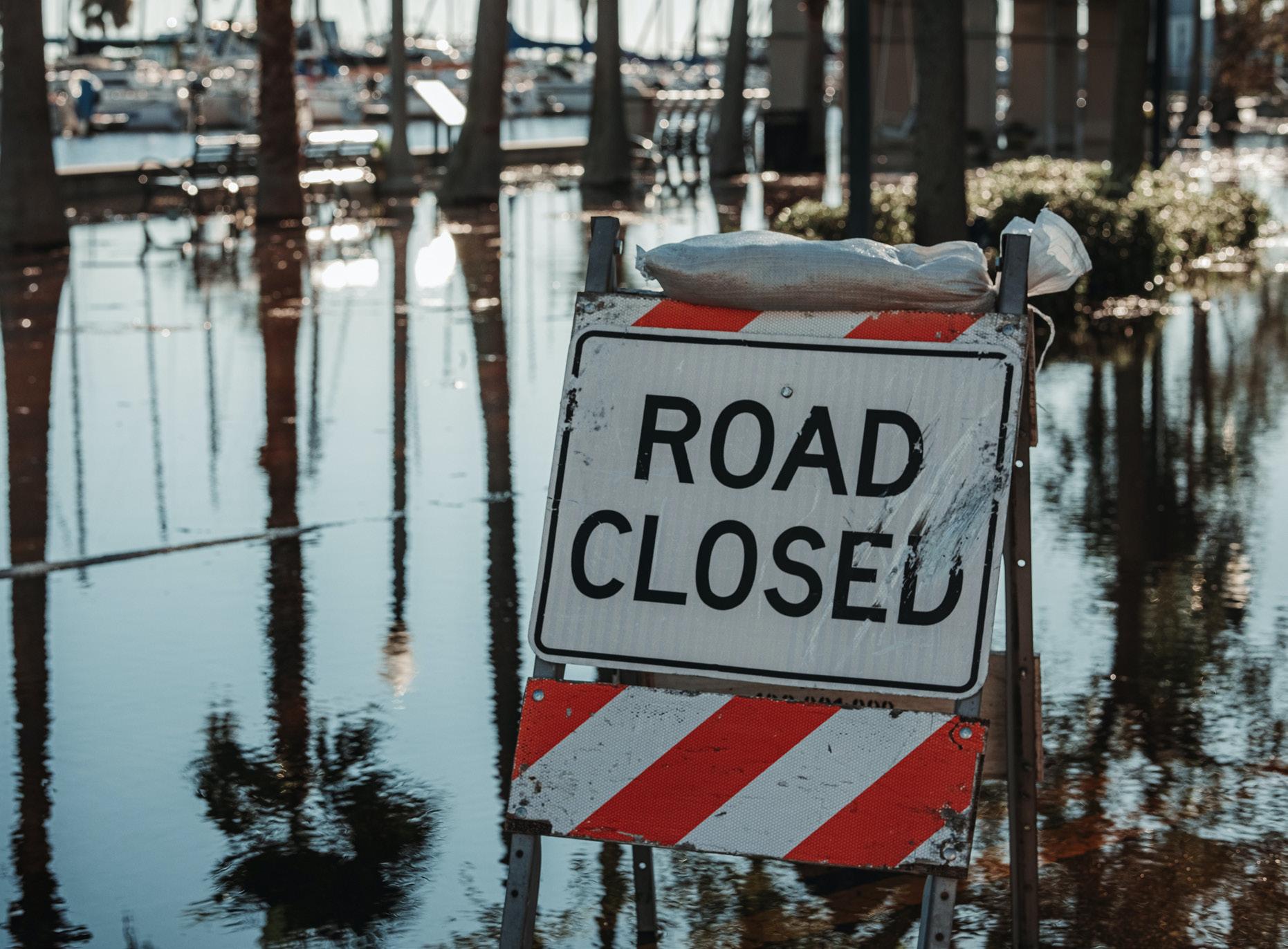
The Caribbean panel encouraged countries to examine how they were preparing for the implementation of ECLAC’s debt-for-adaptation swap, and building projects to facilitate financial mobilization. Discussions also centered on the possible mechanisms and financial instruments that could be explored by the Caribbean Resilience Fund (CRF), to promote investment in growth and resilience building.
Participants offered their perspectives on the wider challenge to the sustainable development process presented by multidimensional vulnerability, which is characteristic of Caribbean economies, and on the most effective strategies to build resilient response to the threat to long-term development posed by climate change and risk. They also considered how effective are data projections for events such as sea level rise, groundwater salination and loss of biodiversity, available to governments in the Caribbean, and how infrastructure assessment and remedial action are being implemented.
At the meeting, former ECLAC Executive Secretary, Alicia Bárcena, presented the fifth report on regional progress and challenges posed by the 2030 Agenda for Sustainable Development in Latin America and
the Caribbean, titled “A decade of action for a change of era”.
The meeting also featured five thematic roundtables, which covered issues such as development in transition and the urgency of advancing toward renewed international cooperation for development; statistical, quantitative and territorial monitoring of the Sustainable Development Goals; natural disasters and the asymmetry of climate change in the Caribbean; the conservation and sustainable use of biodiversity for a sustainable recovery; and education and gender equality as a key human right for the 2030 Sustainable Development Agenda.
system, international institutions, the private sector, academia and civil society.
The annual regional Forum provides useful peer-learning activities through voluntary reviews, the exchange of good practices and discussion of common goals. Its conclusions are submitted directly to the United Nations High-Level Political Forum (HLPF) on Sustainable Development, a global monitoring mechanism of the 2030 Agenda that meets every July in New York.
The Forum was hosted by Costa Rica, and attended by high-level authorities and representatives of governments, the United Nations
The Hummingbird |9
IS BACK
One of the Caribbean’s most legendary regattas has made its triumphant return in The Bahamas.
The National Family Island Regatta, which had been held annually in Exuma before the onset of the pandemic, returned recently to the heart of George Town.
The regatta took place on the 21st to 23rd of April, 2022. It was part of a broader relaunch for festivals by The Bahamas.
said Clay Sweeting, The Bahamas’ Minister of Agriculture, Marine Resources and Family Island Affairs.
“Regattas are responsible for the birth of many businesses including boatbuilding, sailmaking, fisheries, straw work, T-shirt manufacturing,
culinary arts, music, folk arts, entrepreneurship, transportation and hospitality and tourism.” This year’s Exuma Regatta started with races for three straight days in Elizabeth Harbour near George Town, with a focus on traditional Bahamian sloop sailing.

Hundreds of sailors in dozens of vessels competed for prize money and the “glory of the win,” said Danny Strachan, chairman and commodore of the National Family Island Regatta Committee.
It’s been a big year for regattas in the Caribbean, with many of the region’s top sailing festivals having made their return. And it’s even bigger for Exuma, whose breathtaking waters once again host the country’s greatest sailors.
”
10|The Hummingbird
“There is no nation in the world more suitable for sailing competition and these marvelous events,
SainT KITTS, THE CARIBBEAN'S
SECRET HIKING DESTINATION
Maybe you know it for its endless tranquility, its charming inns, or the tapestry of its history. But there’s another side to Saint Kitts, and it begins at the foothills of a dormant volcano.
This is Mount Liamuiga, the 3,800-foot dormant volcano that’s one of the tallest summits in the Caribbean – and the epicenter of the region’s great unheralded hiking destination.
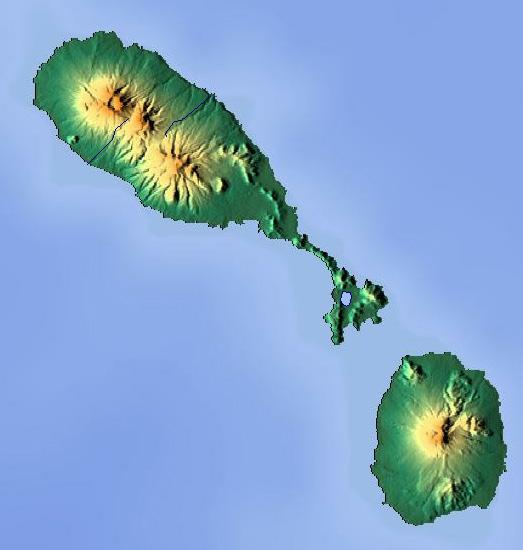
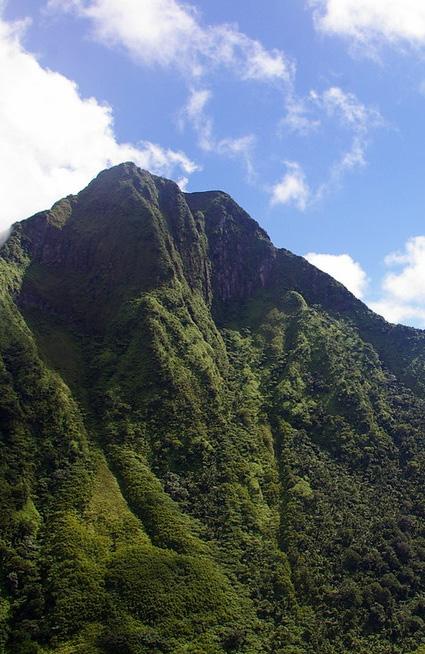
The journey up Liamuiga itself is about four hours, a climb through the green wonder of the Kittitian rainforest and up to the rim of a volcanic crater. Liamuiga was the Kalinago name for the island, meaning “fertile land.” Liamuiga’s last eruption was nearly 2,000 years ago — today, it’s an imposing, beautiful reminder of this island’s immense natural beauty. But the world of hiking Saint Kitts is remarkably rich for a relatively tiny island. That means you can find everything from bat caves to waterfalls to 15-foot boulders at the edge of riverbeds. And there’s something for every skill level.
There’s Dos D’Anse pond, a five-hour hike in the Wingfield area anchored by an ascent up a 900-foot, 25-degree gutter. For a more leisurely hike, there’s Shitten Bay, an hour-long journey that begins in Major’s Bay and takes hikers to a rocky stretch of coastline.
It doesn’t get more difficult than Bat Cave, which includes the aforementioned boulder, leading you to a stunning bat habitat. You’re a world away from the energy of Basseterre and the beach bars at Cockleshell; the daunting history at Brimstone Hill and colorful shops of Port Zante.
PHOTO CREDIT: WIKIPEDIA.ORG
The Hummingbird |11
PHOTO CREDIT: DON KELLOWAY, FLICKR
eclac caribbean and undesa
MEETINGS... THIS TIME IN TRINIDAD AND TOBAGO
Trinidad and Tobago’s oil and gas industry provides the country with a significant revenue stream. However, the country’s dependence on this industry exposes it to volatile price fluctuations. Such economic exposure hampers the sustainability of the country’s economic growth and its ability to build resilience to crises and disasters, including external shocks caused by the COVID-19 pandemic. In 2020, the country’s deficit increased due to emergency economic measures implemented to mitigate COVID-19’s severe socioeconomic effects on the population. For example, the Government deployed the Salary Relief Grant to subsidize payrolls for businesses that had to close temporarily to effect social distancing measures.
On the heels of national consultation meetings in Dominica, ECLAC Caribbean and the United Nations Department of Economic and Social Affairs (UNDESA) continued the partnership series, this time with Trinidad and Tobago. These consultations involved the United Nations Resident Coordinator Office (UNRCO), the United Nations Country Team (UNCT), and the Government of Trinidad and Tobago.
In the national consultations held with Trinidad and Tobago, the government policymakers viewed recovery as a multidimensional concept that needed an institutional framework to adapt to an array of unforeseen challenges. Therefore, Trinidad and Tobago’s long-term national strategy, “Vision 2030”, is a crucial institutional framework to build back better after the COVID-19 pandemic, as it supports integrated planning for a sustainable recovery while allowing for adaptability to shocks.

CONTINUE
CONSULTATION
12|The Hummingbird
ANTIGUA SAILING
WEEK RETURNS

One of the Caribbean’s premier sailing events has officially returned. It’s the 53rd edition of the well-known sea festival, Antigua Sailing Week. Racing begins 30 April, with the standalone Peters & May Round Antigua Race, followed by five days of racing with teams alternative between two courses.
The on-the-water action culminates with the midregatta Reggae in the Park performance by Romain Virgo.
“It’s been three years – way too long!” said Jaime Torres, Antigua Sailing Week’s race manager. “The weather is here, the sailors are here, we have great racing boats, it’s going to be incredible!
The UN’s Socio-Economic Response Plan for COVID-19 provided a rapid assessment of the situation and identified critical gaps in the response measures. The Government of Trinidad and Tobago takes this response plan further by developing an integrated recovery approach through the Government’s Roadmap to Recovery Plan. The Government’s recovery plan integrates and leverages policy areas to promote a successful recovery, such as advancing the country’s digital transformation. The stakeholders overwhelmingly pointed to enhancing digital preparedness as the most critical area to focus policy measures. Enhancing digital preparedness helps build resilience against future challenges, and follows the path many countries worldwide take to rebuild their economies through the increased use of digital technologies.
A point of consensus among the participants was Trinidad and Tobago’s need to invest in measures that phase out the country’s dependency on oil and gas. This enormous but key policy task invariably requires focusing on renewable energies and sustainable use of natural resources.
The meeting’s participants agreed that sustainable agriculture was the second most crucial policy area after digital preparedness. Agriculture is a key area of focus for policy measures promoting an economic recovery that achieves climate resilience. In addition, sustainable agriculture reduces environmental impacts. It promotes food security, which is a crucial area to achieving resilience to multiple potential and current socioeconomic threats, such as increasing consumer prices.
We are expecting typical conditions of 15-20 knots, partly cloudy with up to three metres of sea state. The class splits have evolved in an organic and thoughtful way. “Not only do we look at CSA Rating but also parameters such as Hull Factor. Also, through years of experience we know which boats like to race against each other. The purpose of the class splits is to offer close racing and that is not achieved simply by using CSA Rating.”
New this year is a “virtual regatta,” aimed at those who can’t make it to Antigua, which is running for seven days. It’s another boost for Antigua’s tourism renaissance since the onset of the pandemic.

The Hummingbird |13
ECLAC family
The ECLAC Port of Spain family welcomed two staff members recently, one new and one not so “new”.
They are Laverne Walker, in the position of Sustainable Development Officer, in the Sustainable Development and Disaster Unit (SDDU), and Machel Pantin, in the position of Associate Economic Affairs Officer, in the Economic Development Unit (EDU).
Laverne brings to ECLAC over 20 years of professional experience in resource management, particularly in marine and coastal management. Her most recent position was Project Deputy Coordination with the United Nations Office of Project Services (UNOPS) where she was involved in the implementation of two International Waters projects. She also held employment with the Government of Saint Lucia as a Sustainable Development and Environment Officer, with primary responsibility for leading the Government of Saint Lucia's Coastal Zone Management Unit. She is also a certified Project Management Professional (PMP) with over 10 years of project management experience.
Laverne is a holder of a Master of Science in Marine Management obtained from the University of Dalhousie in Canada in 2002, where she focused on marine and environmental policies. She also holds an honors degree in Marine Biology, also obtained from Dalhousie University.
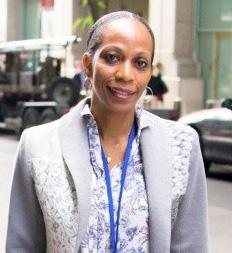
DEVELOPMENT
LAVERN WALKER SUSTAINABLE
OFFICER SDDU
WELCOMES TWO STAFF MEMBERS 14|The Hummingbird
MACHEL PANTIN ASSOCIATE ECONOMIC AFFAIRS OFFICER EDU
Machel, meanwhile, has been promoted to the professional category, and has over nine years experience working with ECLAC as an Economic Affairs Assistant, in the Economic Development Unit, where he prepared economic research and disaster assessment reports; drafted speeches, and serviced expert group meetings.
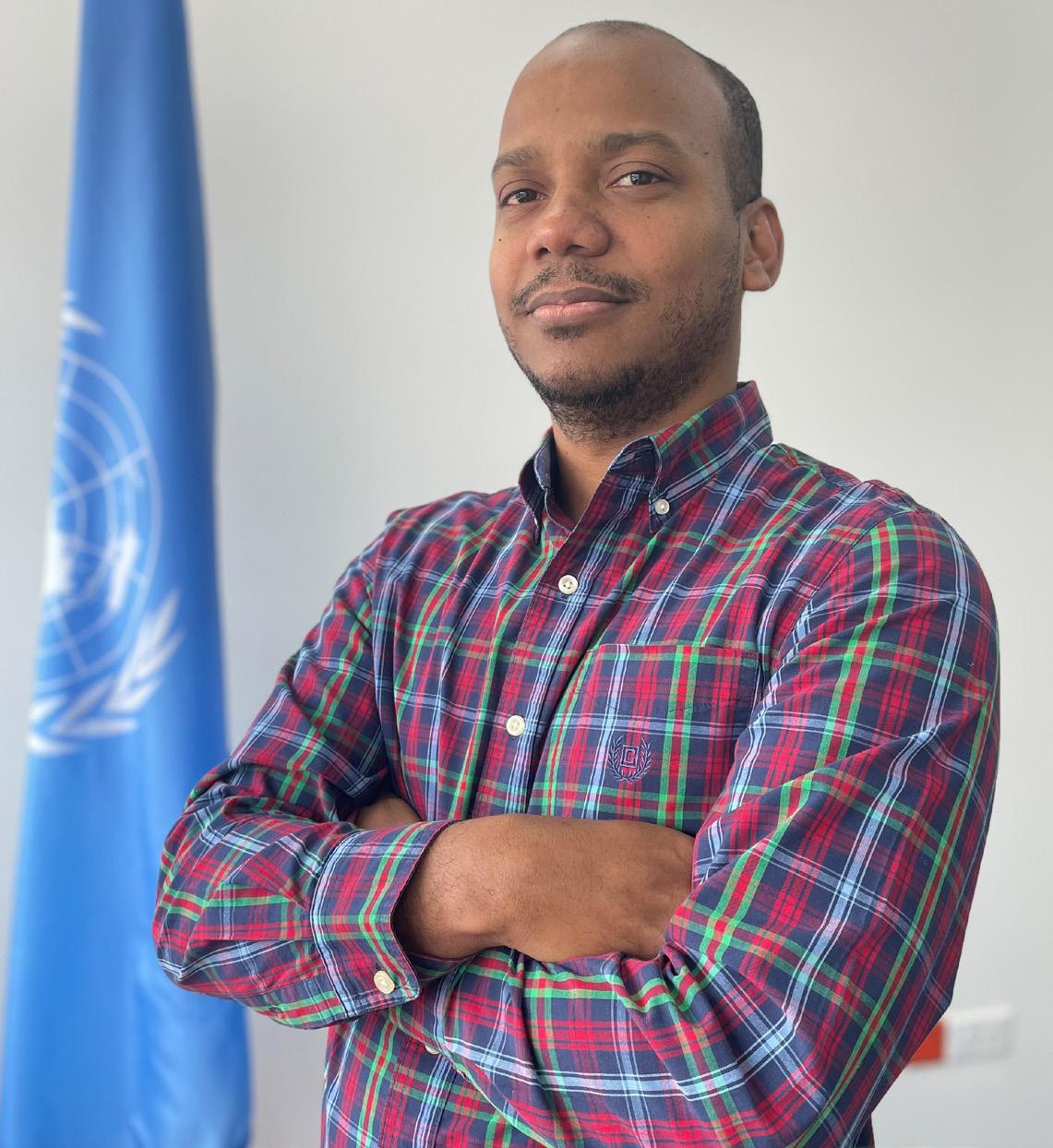
He also collaborated with colleagues in the hosting of international meetings, which included the preparation of inputs for statements and presentations, and the production of meeting reports. Additionally, he contributed to several technical assistance projects throughout the years from drafting concept notes to final reviews and editing.
Machel holds a Masters degree in Economics obtained from the University of the West Indies, St. Augustine in 2009, and a Bachelor's degree in Management and Economics, also obtained from the University of the West Indies, St. Augustine in 2005.
warmly welcomes Laverne to the Port of Spain office and extends congratulations to Machel on his success and promotion to his new position!
The Hummingbird |15
THE
WITH CARAMEL SAUCE bread pudding
What you will need:
BREAD PUDDING
• 1 cup boiling water
• 1 cup raisins
• 6 eggs
• 2/3 cup granulated sugar
• 4 cups milk
• 2 tsp vanilla essence
• 2 tsp grated orange zest
• 1 tsp freshly grated nutmeg

• 1½ tsp cinnamon
• 1 large loaf white bread
CARAMEL SAUCE
• 1 cup brown sugar
• 1½ cup evaporated milk or light cream
• ½ tsp salt
How to Make it:
BREAD PUDDING:
Step 1: Preheat oven to 350F.
Step 2: Butter a 12-inch baking dish.
Step 3: Pour boiling water over raisins and allow to soak for 10 minutes.
Step 4: Heat milk in saucepan.
Step 5: In a mixing bowl beat eggs with sugar add milk, vanilla, orange zest and spices.
Step 6: Cut bread into one inch cubes, pour custard over bread cubes, add raisins.
Step 7: Pour mixture into dish.
Step 8: Bake in a water bath for about 50 to 60 minutes.
Step 9: Cool until warm.
CARAMEL SAUCE:
Step 1: Heat milk in saucepan.
Step 2: Add the milk gently. Cook and stir until mixture is homogeneous. Stir in salt.
Step 3: Serve warm over bread pudding.
16|The Hummingbird
THE KITCHEN

The Hummingbird |17







CONTACT
ECLAC Subregional Headquarters for the Caribbean, 1 Chancery Lane, P.O. Box 1113, Port of Spain, Trinidad and Tobago, West Indies. Telephone: 1 868 224 8000 E-mail: registry@eclacpos.org MEDIA
CONTACT US SOCIAL MEDIA
Headquarters for the
CONTACT
CONTACT US SOCIAL MEDIA CLICK HERE OR SCAN THE QR CODE TO VISIT OUR WEBSITE...
Tel.: 1 868 224 8075 E-mail: media-pos@eclac.org
ECLAC Subregional
Caribbean, 1 Chancery Lane, P.O. Box 1113, Port of Spain, Trinidad and Tobago. MEDIA
Tel.: 1 868 224 8075 E-mail: eclac-media-pos@eclac.org


























